Nasu Town, Tochigi栃木県那須町
Living in Nasu Town, Tochigi
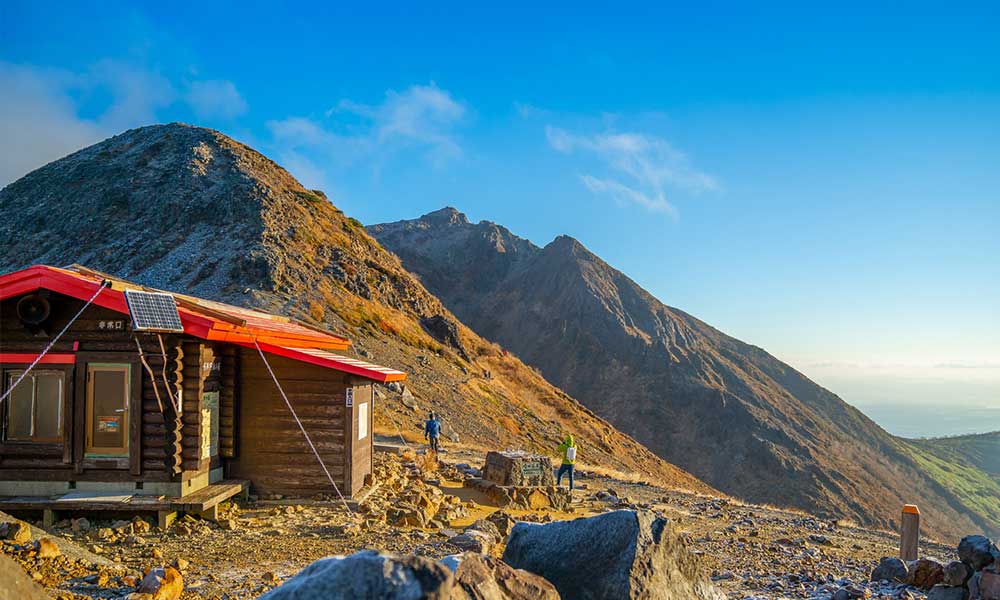
We have Summarized the livability of Nasu Town, Tochigi.
NASU AREA那須地域
CONTENTS
- What kind of place is Nasu Town?
- Nasu TownPR video
- How is the traffic situation in Nasu Town?
- How are the rent and land prices in Nasu Town?
- How is childcare and education in Nasu Town?
- How about shopping in Nasu Town?
- How about jobs and recruitment in Nasu Town?
- Nasu Town’s unique subsidy/subsidy system
What kind of place is Nasu Town, Tochigi?
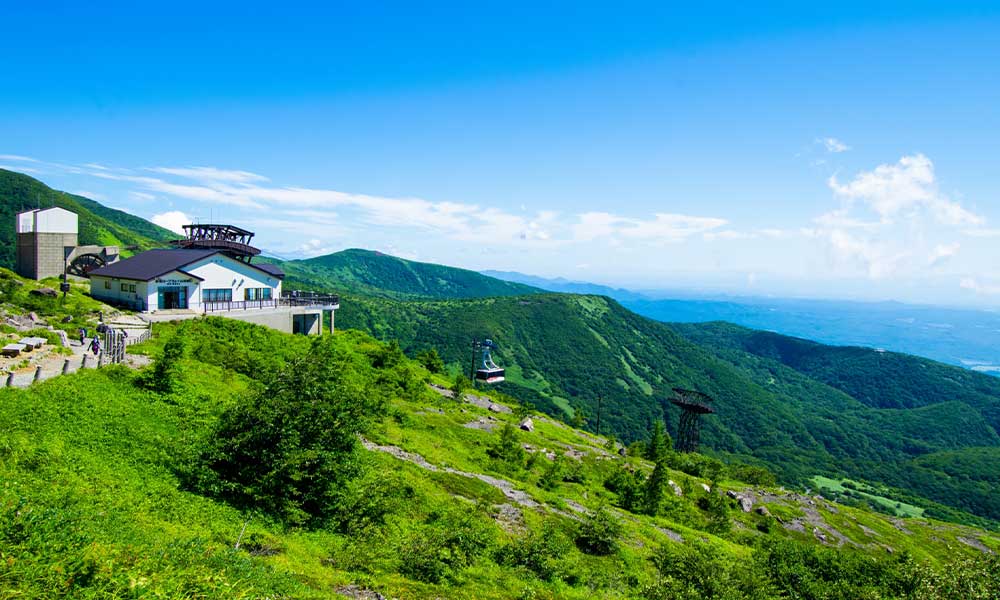
Nasu Town is surrounded by mountains and has many outdoor spots, making it a town rich in tourist resources.
Nasu Town is located in the northeastern part of Tochigi Prefecture, covering an area of approximately 372.34 square kilometers.
It borders Shirakawa City and Nishigo Village to the north, Tanagura Town and Shirakawa City to the east, Nasu Shiobara City and Otawara City to the south, and Nasu Shiobara City to the west.
The population is about 24,000, with approximately 10,000 households (as of January 2024).
Nasu Town is about 170 km from Tochigi Prefecture and about 60 km from Utsunomiya City.
The Naka River flows through the southwestern part of the town, while the Kurokawa River flows through the northeastern part. The eastern area features the Yatsugadake Mountains, and the northwest is dominated by the majestic Chausudake Mountain of the Nasu mountain range, with the famous Nasu Highlands as a resort area on its southern slope.
In the central area, relatively flat terrain has formed residential and agricultural zones centered around JR Kurodahara Station, with a concentration of houses and stores.
The climate is characterized by cold winters with many days below freezing and pleasant summers due to the high altitude.
The town was established as Nasu Village when the town and village system was enacted in 1889. In 1954, it merged with neighboring municipalities, Ashino Town and Iohono Village, and incorporated part of Kuroiso Town the following year to form the current Nasu Town.
The town is divided into four major regions: the highland area, which boasts the majestic nature of the Nasu mountain range and many tourist facilities; this area has recently become popular with stylish cafes and shops, hosting events that attract many tourists during the season.
Nasu’s central region has residential and commercial facilities, including the town hall and sports facilities, forming the administrative and industrial core of the town.
The Ashino region flourished as a post town on the old Oshu Highway, retaining the charm of a castle town with beautiful rural landscapes.
The Iohono region is located in the eastern part of the town and has a long history along the old Tohiyama Road, featuring many historical sites. It is a tranquil area with sprawling fields where fresh local produce can be purchased daily at the Michi no Eki Higashiyama Iohono.
Nasu Town, home to the Nasu Highlands and Nasu Onsen, has long been recognized as a royal resort area, having the Nasu Imperial Villa.
The town’s main industry is tourism, with numerous accommodation facilities, hot springs, and sightseeing spots primarily in the highland area.
Nasu Animal Kingdom is a popular facility with a vast area where visitors can see and interact with many animals, including rare species like the Pallas’s cat and sand cat, and enjoy an impressive bird show, as well as a barbecue area for leisure activities.
Nasu Highland Park is one of the largest leisure resorts in northern Kanto, featuring an amusement park, a zoo, accommodation facilities, and hot spring facilities.
The amusement park offers attractions for both adults and children, making it perfect for little ones’ first experiences in an amusement park.
Additionally, it is one of the few facilities in Japan that allows pets, with an indoor dog run and dog cafe available, as well as attractions that can be enjoyed with pets.
Nasu Safari Park is a popular spot where visitors can see around 50 kinds of animals up close, including lions and tigers.
Guests can observe animals while driving through the park and even feed herbivorous animals from inside their cars, offering a thrilling experience.
Popular attractions include elephant rides, where visitors can ride on an elephant’s back to tour the park, and night safaris to observe the nocturnal behaviors of animals.
PR video of Nasu Town, Tochigi
Nasu Town Telework Promotional Video “WORK BASE NASU”
ROYAL RESORT NASU
NASU 2nd video Nasu Town
Wing Venus
How is the traffic situation in Nasu Town?
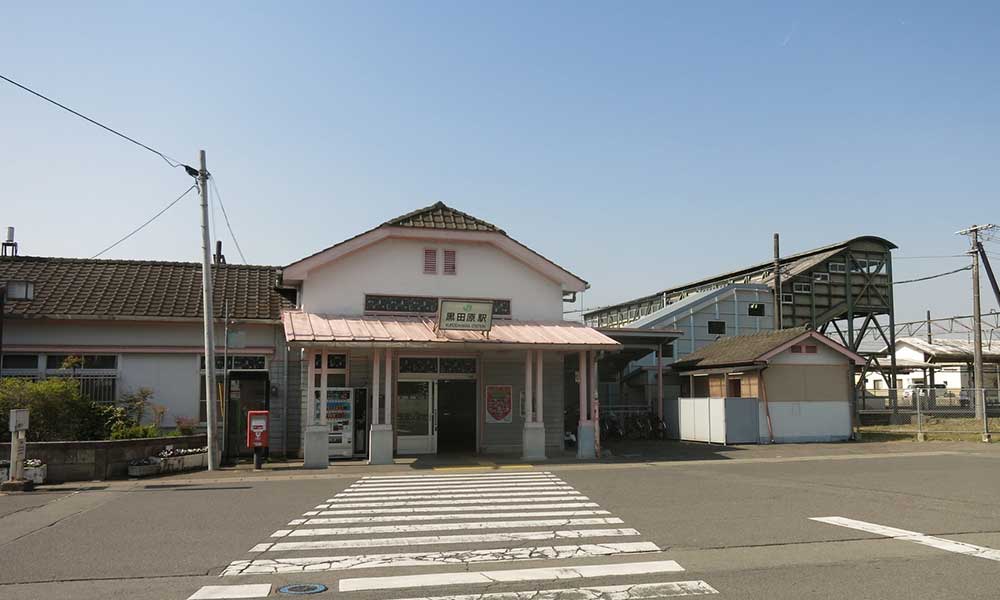
Nasu Town has a wide range of public transportation options, including trains and buses, and the roads are well-maintained, making it easy to travel by car.
In Nasu Town, the JR Tohoku Main Line runs vertically through the area, with three stations: “Takaku Station,” “Kurodahara Station,” and “Toyohara Station.” The Tohoku Shinkansen also runs parallel to this line, but it cannot be boarded from within the town.
Nasu Town is connected by National Route 4 and National Route 294, linking the southern city of Nasu Shiobara and the northern city of Shirakawa.
Similarly, the Tohoku Expressway connects Nasu Shiobara City and Shirakawa City, with access available at two locations: “Nasu IC” and “Nasu Kogen SIC.”
For public transportation within Nasu Town, Kanto Bus and Fukushima Transportation operate route buses.
Residents can also use the community bus, Nasu Town Community Bus, which circulates around JR stations and key facilities in the town.
Additionally, there is the Nasu Town Demand-Responsive Transport, a shared ride service that operates between designated areas and residents’ homes.
This convenient transportation option provides relatively low-cost rides to and from Kurodahara District’s stations, public facilities, and hospitals when booked in advance.
There are many entrances and exits to national highways and expressways, making it convenient for long trips and car travel.
Please be careful as there are many areas where traffic congestion occurs during the tourist season.
How are the rent and land prices in Nasu Town?
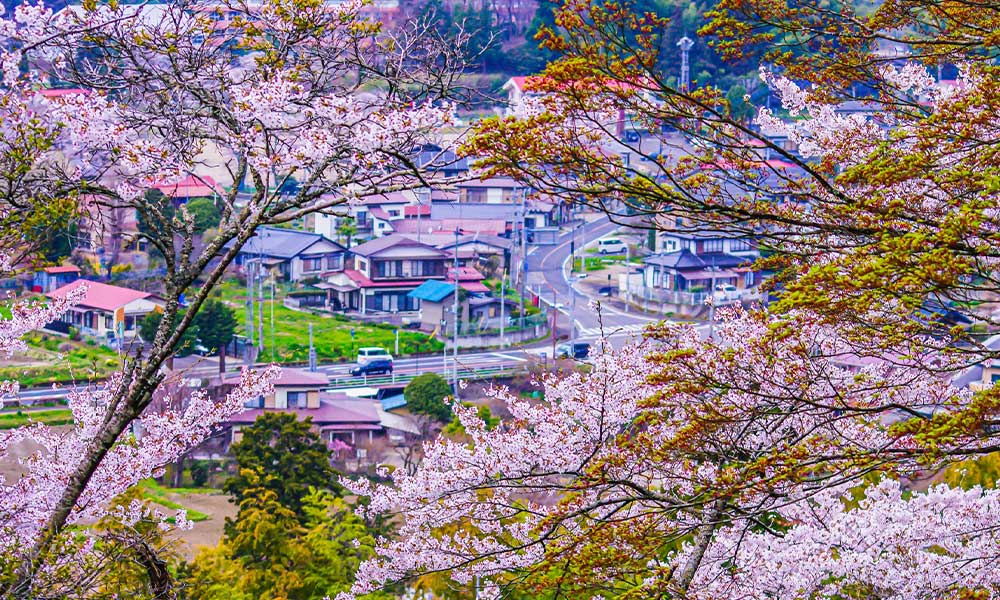
Nasu Town is an area surrounded by nature where you can live your dream custom-built home.
According to information from a real estate information website, the average rent in the city for a newly built apartment within a 10-minute walk from the station is about 53,000 yen for a 1K and 61,000 yen for a 2DK. The average land price per tsubo is about 40,000 yen per tsubo.
Various types of properties are traded, including detached houses, apartments, and villas. Housing prices in Nasu Town vary depending on the area, but tend to be relatively lower than in urban areas. However, due to its popularity as a tourist destination and its beautiful natural environment, there are some expensive properties in some areas.
While you can enjoy nature and hot springs, some areas also have well-developed infrastructure such as commercial facilities and medical facilities.
While Nasu Town is rich in nature, there are also areas with poor transport access. Factors related to commuting to work or school, such as the availability of public transport and the road network, must also be taken into consideration.
How is childcare and education in Nasu Town?
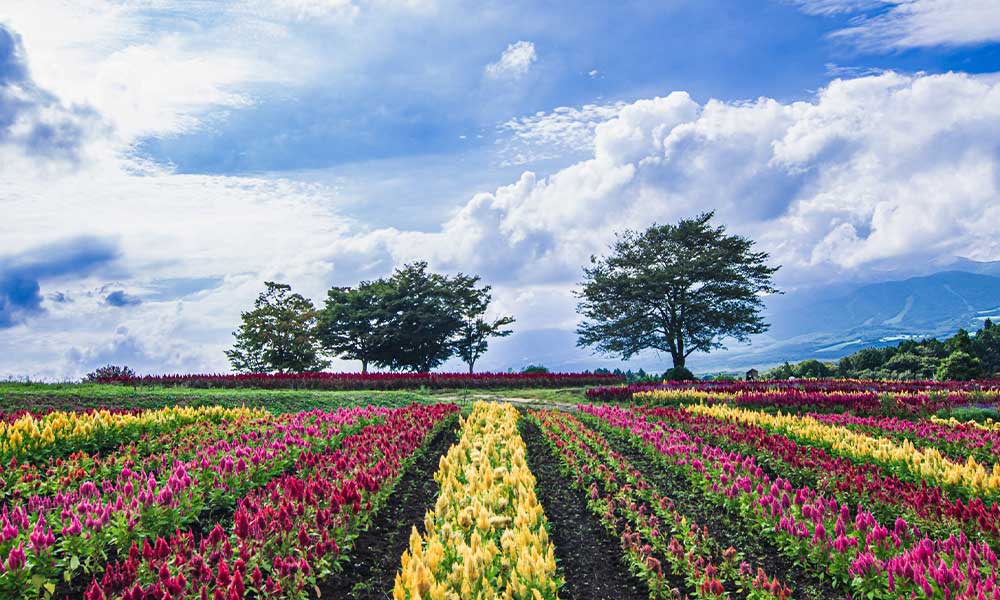
Nasu Town is a town with plenty of daycare facilities and schools, making it a great place to enjoy raising children outdoors.
In Nasu Town, there are 9 nurseries, 2 kindergartens, 6 elementary schools, 3 junior high schools, and 3 high schools.
The Child Medical Expense Subsidy Program provides full coverage for children under 18 years of age (up to March 31 after reaching 18 years) for both outpatient and inpatient care.
Child allowances include 15,000 yen for children under 3 years, 10,000 yen for the first and second child aged 3 years to before entering elementary school, 15,000 yen for the third child and beyond, and 10,000 yen for junior high school students.
Nasu Town also offers various unique child-rearing support initiatives.
The Nasu Town Sukusuku Childbirth and Child-Rearing Support Grant Program provides financial assistance of 50,000 yen per pregnant woman for childbirth-related expenses and 50,000 yen per child for child-rearing support when a pregnancy or birth is registered.
The Infant Diaper Purchase Subsidy Program offers partial subsidies for purchasing diapers and related products, providing 50,000 yen worth (1,000 yen x 50 pieces) at the time of the baby’s birth, 40,000 yen worth (1,000 yen x 40 pieces) at one year, and 20,000 yen worth (1,000 yen x 20 pieces) at two years.
Other programs include the Short-Term Child-Rearing Support Program (Short Stay) and the Child-Rearing Support Helper Dispatch Program.
Nasu Town operates a child-rearing support app, Hapi NASU (Hapinasu) Diary by Boshimo, which provides information related to pregnancy, childbirth, and child-rearing, along with growth tracking for babies and immunization schedule management.
The Wakuwaku Kids Land is a play area located within the “Riboru-Tanaka” facility, available for children aged 0 to 3rd grade and their guardians. The indoor space features various play equipment and trampolines for free play.
All educational institutions prepare school lunches in the school cafeteria, so students can eat freshly cooked, hot meals.
There are few extracurricular activities or cram schools available, so children often have to travel outside of town to attend.
How about shopping in Nasu Town?
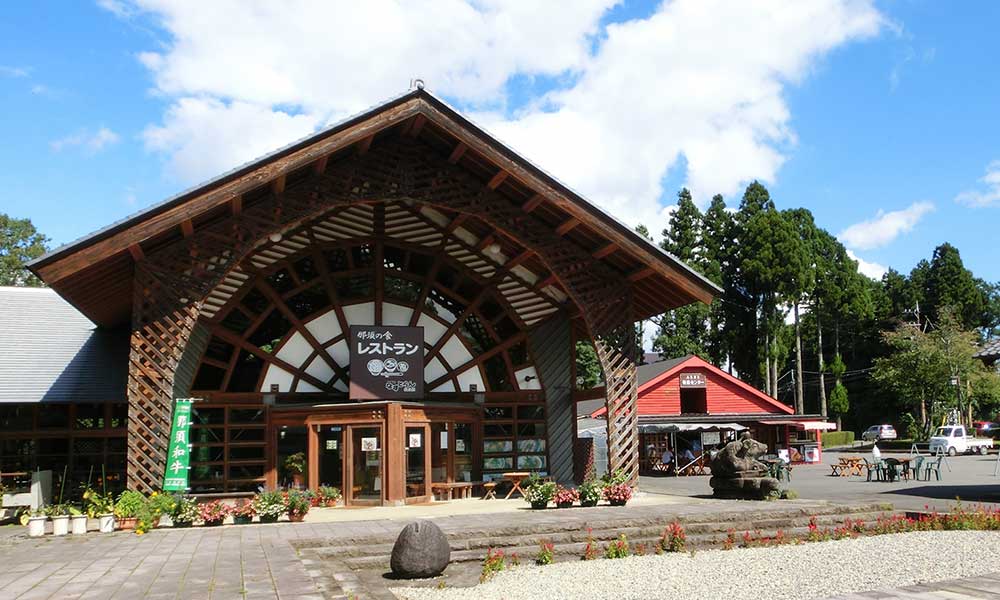
Nasu Town is a convenient shopping town with everything from fashionable shops to supermarkets and drugstores.
The highland area of Nasu Town features trendy restaurants, shops, and roadside stations typical of tourist destinations.
The Nasu Resort Shopping Park 661st is a shopping park at the gateway to Nasu Highlands, featuring 15 stores including import goods, a liquor shop, and dining options housed in an American-style building.
The Roadside Station Nasu Highlands Tomoai no Mori is located about 10 minutes by car from the Nasu IC on the Tohoku Expressway. This facility includes local agricultural products, restaurants, and experience facilities for crafting within its spacious grounds. Although it gets crowded during tourist seasons, there is ample parking space available, making it stress-free to park.
In the central Nasu area, there are supermarkets, drugstores, and convenience stores scattered throughout, making it convenient for daily shopping.
However, the area around the train stations has relatively few commercial facilities, and most are concentrated along major roads, making it less convenient for shopping without a car.
There are many stylish restaurants and shops in the tourist areas, making shopping fun.
Supermarkets and convenience stores are only found in the center of town, so it may be inconvenient if you live far from the city.
How about jobs and recruitment in Nasu Town?
Nasu Town is a town with abundant tourism resources and a robust service industry.
The average annual income in Nasu Town is 2.71 million yen.
The town’s main industry is tourism, with accommodations, hot springs, tourist attractions, and restaurants concentrated in the highland area, leading to a wealth of job opportunities in customer service, hospitality, and food service sectors.
Nasu Town also has comprehensive support programs for households considering relocation. There are attractive systems in place for those thinking of moving from the metropolitan area for telework or starting a business.
The Nasu Town Relocation Support Subsidy provides financial assistance for residents moving from the 23 wards of Tokyo or those commuting to the 23 wards, given they meet certain criteria. The subsidy is 1 million yen for households relocating and 600,000 yen for individuals relocating. Additionally, if there are individuals under 18 in the household, an extra 1 million yen is granted for each person under 18.
Furthermore, the town is adjacent to major cities in the prefecture, such as Otawara City and Nasushiobara City, making it accessible for commuting.
You can avoid the hustle and bustle of the city and work in the midst of nature.
The wages are lower than in the city centre.
Nasu Town, Tochigi’s unique subsidy/subsidy system
Nasu Town, Tochigi’s unique relocation assistance and relocation subsidy system
| Nasu Town Relocation Support Subsidy |
Nasu Town, Tochigi’s unique housing assistance and subsidy system
Nasu Town, Tochigi’s unique childcare support system
Nasu Town, Tochigi’s unique system for further education and tuition assistance/subsidies
| Support for Enrollment in Elementary and Junior High Schools Nasu Town Scholarship Student Recruitment Nasu Town Scholarship Students (Grant-Type) Recruitment |






